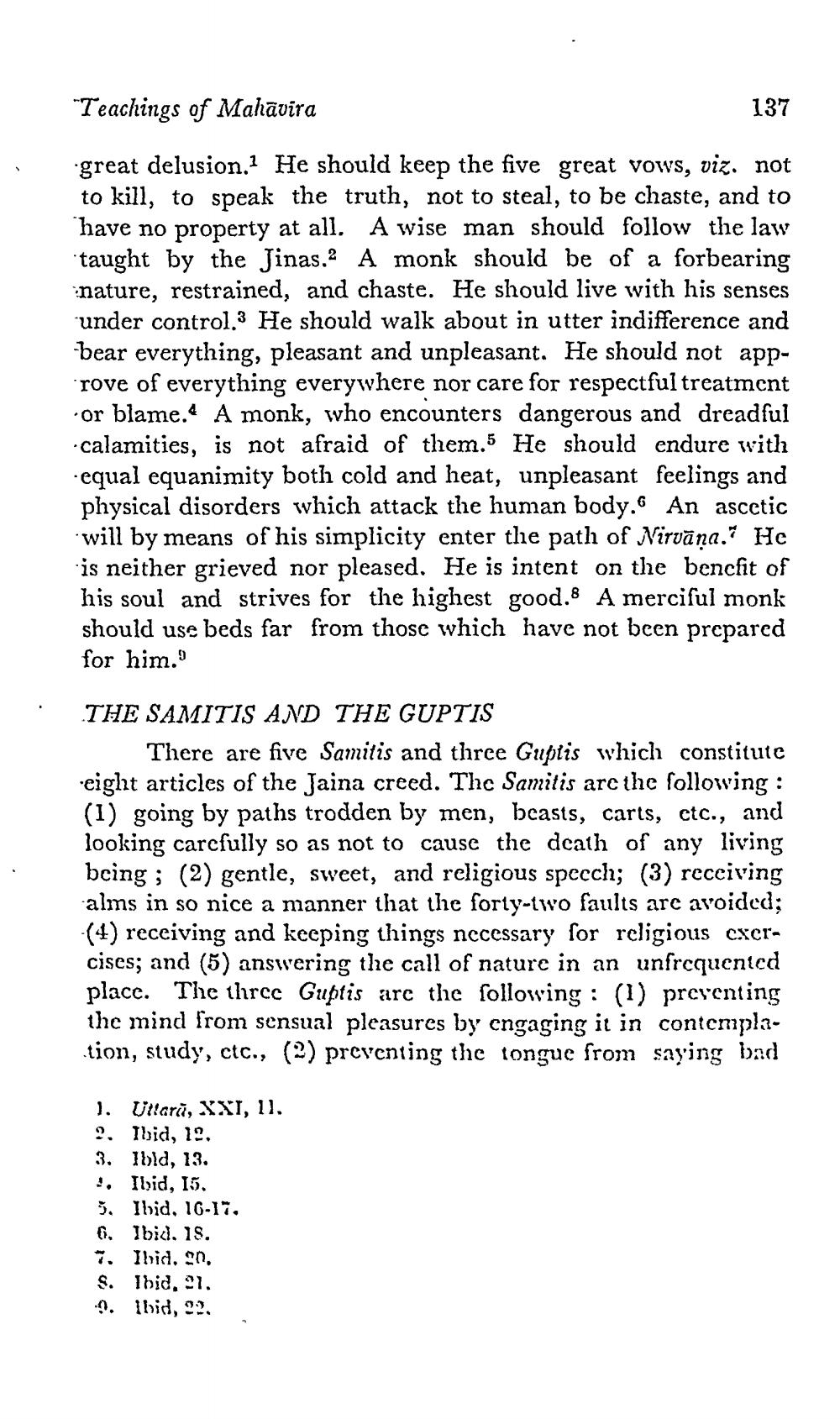________________
"Teachings of Mahavira
137
great delusion. He should keep the five great vows, viz. not to kill, to speak the truth, not to steal, to be chaste, and to have no property at all. A wise man should follow the law taught by the Jinas.2 A monk should be of a forbearing nature, restrained, and chaste. He should live with his senses under control.3 He should walk about in utter indifference and bear everything, pleasant and unpleasant. He should not approve of everything everywhere nor care for respectful treatment or blame. A monk, who encounters dangerous and dreadful ·calamities, is not afraid of them. He should endure with .equal equanimity both cold and heat, unpleasant feelings and physical disorders which attack the human body. An ascetic will by means of his simplicity enter the path of Nirvana." He is neither grieved nor pleased. He is intent on the bencfit of his soul and strives for the highest good.8 A merciful monk should use beds far from those which have not been prepared for him.'
THE SAMITIS AND THE GUPTIS
There are five Samitis and three Guplis which constitute -eight articles of the Jaina creed. The Samitis are the following: (1) going by paths trodden by men, bcasts, carts, etc., and looking carefully so as not to cause the death of any living being ; (2) gentle, sweet, and religious specch; (3) receiving alms in so nice a manner that the forty-two faults are avoided; (4) receiving and keeping things necessary for religious excrcises; and (5) answering the call of nature in an unfrcqucnicd place. The three Guptis are the following: (1) preventing the mind from sensual pleasures by engaging it in contemplation, study, ctc., (2) preventing the tongue from saying bad
1. Ullari, XXI, II, .. Ibid, 12. 3. old, 13. .. Ibid, 15. 5. Ibid, 16-17. 6. Ibid. is. 7. Ibid. n. S. Thid, 21. 9. Ibid, 22.




